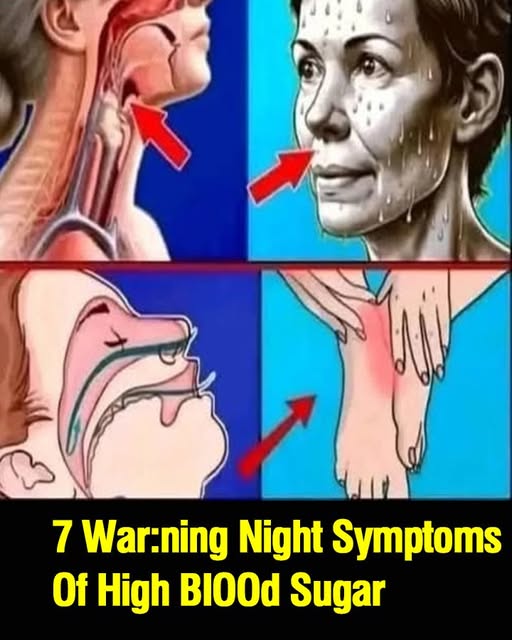
High blood sugar, or hyperglycemia, is a condition with potentially serious consequences. Because it often develops silently, recognizing its early warning signs is essential. High blood sugar can occur with or without diabetes, and if left untreated, it can cause widespread damage to organs, nerves, and blood vessels. Early detection can make a huge difference in managing your health and avoiding long-term complications.
1. Excessive Thirst
A constant feeling of thirst—known medically as polydipsia—is one of the clearest signs your blood sugar may be too high. When glucose builds up in your bloodstream, your kidneys work overtime to filter it out, causing frequent urination and, in turn, dehydration. This cycle makes you feel constantly thirsty, no matter how much you drink.
2. Increased Hunger
Despite eating regular meals, individuals with high blood sugar often feel hungrier than usual. When your body has trouble using glucose due to insulin resistance, it fails to convert food into energy. The result? Your brain thinks you’re starving, triggering excessive cravings and increased food intake—even if you’re technically consuming enough calories.
3. Frequent Urination
Another common red flag is urinating more often than normal, especially at night. This happens because your kidneys can’t reabsorb all the glucose, which ends up being flushed out through urine—pulling water along with it. This frequent loss of fluids can quickly lead to dehydration and disrupt sleep.
4. Constant Fatigue

You might assume high blood sugar would give you an energy boost—but the opposite is often true. Your cells aren’t getting the fuel they need, and your body starts breaking down fat and muscle instead. Combined with dehydration, this leads to feelings of tiredness, low stamina, and general weakness.
5. Blurred Vision and Headaches
Excess sugar in the blood can affect the small blood vessels in your eyes, leading to swelling and fluid retention. This causes blurry vision and can also trigger headaches. These visual and neurological symptoms are early indicators that something may be wrong with your blood sugar levels.
6. Tingling or Numbness in Hands and Feet
Known as peripheral neuropathy, this symptom occurs when elevated blood sugar damages your nerves over time. You may feel tingling, burning, or numbness—usually in the hands, feet, or legs. At first, it may be subtle, but it can worsen and interfere with daily activities if not addressed.
7. Skin Issues and Gum Problems
High blood sugar weakens the immune system, making you more vulnerable to skin infections, itchiness, fungal rashes, or delayed wound healing. It can also contribute to gum disease, leading to swollen, bleeding gums and bad breath. These external signs often reflect internal imbalances tied to glucose regulation.
Takeaway: Don’t Ignore the Signs
Recognizing the early symptoms of high blood sugar is crucial for preventing more serious complications. Whether or not you’ve been diagnosed with diabetes, paying attention to these subtle changes can help you take action early. Seek medical advice if you notice any combination of these symptoms—early intervention can make all the difference in protecting your long-term health.

















